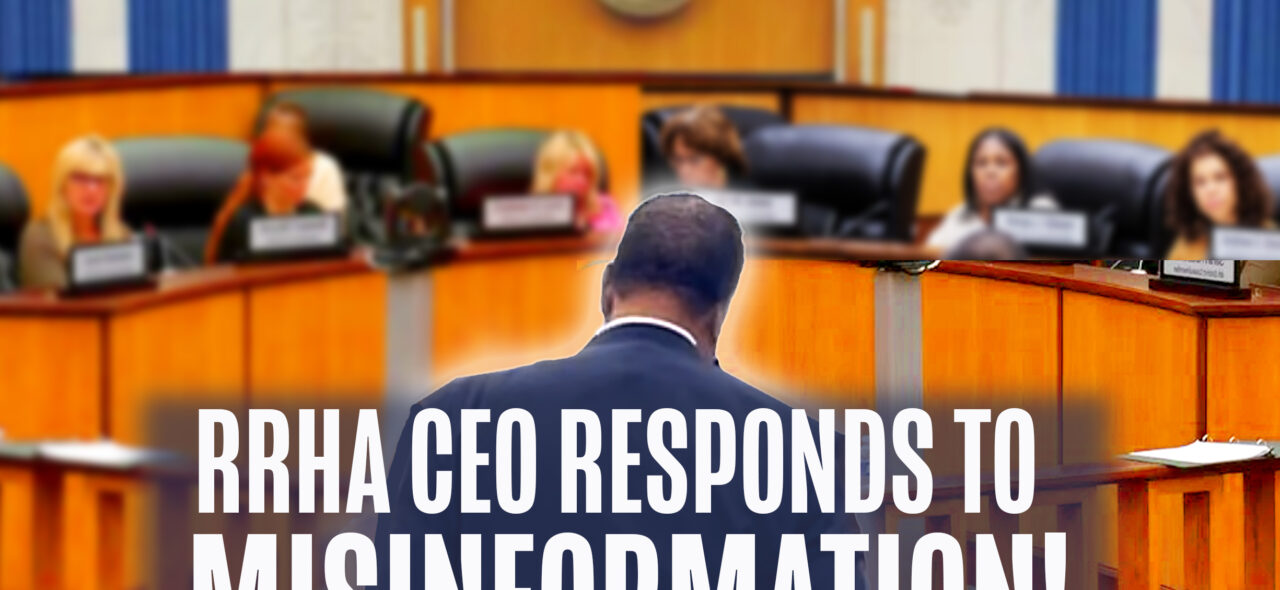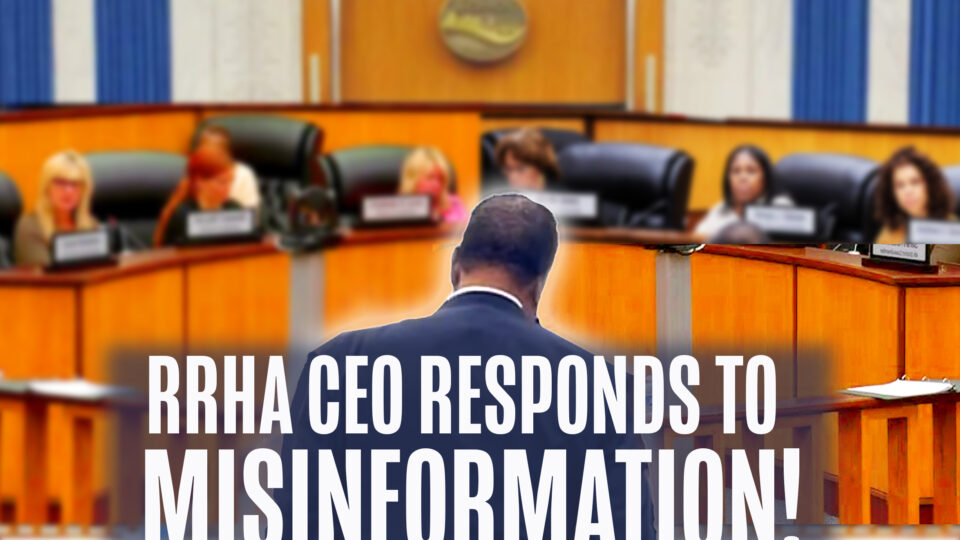July 30, 2025
The Richmond Redevelopment & Housing Authority (RRHA) is committed to transparency, responsible stewardship, and the well-being of our residents. In light of recent public comments by Councilwoman Kenya Gibson and Stephanie Lynch, we feel compelled to respond with facts to clarify several inaccuracies and provide important context regarding our housing conditions, redevelopment plans, and funding strategies.
RRHA respectfully disagrees with the City Council’s interpretation of Virginia Code § 36-51 as it relates to the agency’s authority to enter into a Master Development Agreement (MDA) without Council involvement.
Under state law and long-standing practice, RRHA is governed by a nine-member Board of Commissioners who have the exclusive authority to oversee and authorize agreements related to the redevelopment of public housing communities owned by RRHA. This includes the selection of development partners and execution of MDAs. This governance structure is consistent with affordable housing law and prior precedent, including the MDA entered into for Creighton Court with The Community Builders developer.
On October 3, 2023, the RRHA Board of Commissioners unanimously passed a resolution authorizing CEO Steven Nesmith to execute the MDA related to public housing redevelopment. The process followed was proper, transparent, and consistent with RRHA’s statutory responsibilities and historical practices.
Given that City Council has never before been involved in the approval or execution of an MDA by RRHA, we are puzzled as to why this concern is being raised now. We remain committed to working collaboratively with all partners in this important redevelopment effort. To that end, RRHA’s legal counsel will meet with the City Attorney’s office to provide clarification and ensure continued transparency.
RRHA Responds to Misleading Public Comments Regarding Housing Conditions and Redevelopment Strategy
On Claims of Neglect and Vacant Units
It is inaccurate and misleading to claim that RRHA has “left its assets in despair” or “knowingly leaves residents in abhorrent conditions.” The reality is far more complex and tied to decades of declining federal investment in public housing. The capital funding that RRHA receives from the U.S. Department of Housing and Urban Development (HUD) continues to fall short of the growing needs of aging public housing infrastructure across the nation—including right here in Richmond. This chronic underfunding severely limits our ability to make the major repairs and upgrades required in our oldest properties.
To be clear, RRHA does not benefit from leaving units vacant. However, in some instances, vacant units are part of a strategic effort to meet the eligibility criteria for federal revitalization grants—such as the Choice Neighborhoods Initiative (CNI)—which can bring hundreds of millions of dollars to Richmond to build new, high-quality, affordable housing. In the case of Gilpin Court, certain levels of vacancy are necessary to qualify for this highly competitive HUD grant. This is not a tactic of neglect, but rather a long-term investment strategy designed to improve conditions and expand housing opportunities for more families.
On Resident Displacement and Redevelopment Planning
The assertion that RRHA’s current redevelopment strategy is purely private and lacks resident protections is categorically false. The Master Development Agreement (MDA) in question does not preclude federal support and was executed in accordance with RRHA’s statutory authority. Furthermore, RRHA is required by federal law and internal policy to ensure that every resident affected by redevelopment is offered a comprehensive relocation plan, housing choice, and the right to return to newly built housing—none of which are optional.
Displacement without a path forward is not part of our redevelopment model. Our redevelopment efforts, including those aligned with the Redevelopment and Revitalization Plan and the Richmond Development Corporation (RDC), are centered on resident-first principles and are designed to address—not deepen—housing instability.
On Characterizing RRHA as a ‘Slum Landlord’
Referring to RRHA as the city’s “largest slum landlord” is not only unfounded—it is deeply disrespectful to the hard-working RRHA staff and residents who are actively engaged in improving our communities every day. RRHA has worked tirelessly to modernize its portfolio, secure new funding, and pursue public-private partnerships to revitalize long-neglected properties. These are the very steps required to reverse decades of disinvestment—not perpetuate it.
Moving Forward
RRHA welcomes constructive criticism and values accountability. However, rhetoric that misinforms the public, disrespects residents, and distorts facts undermines the urgent and collective effort needed to solve Richmond’s affordable housing crisis.
We remain committed to working collaboratively—with City Council, residents, and our federal partners—to secure the funding, policy support, and vision required to build stronger, safer, and more equitable communities.

